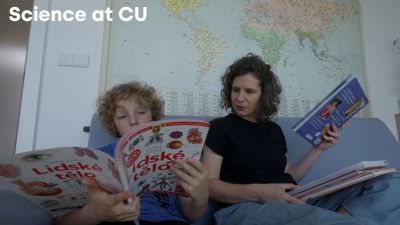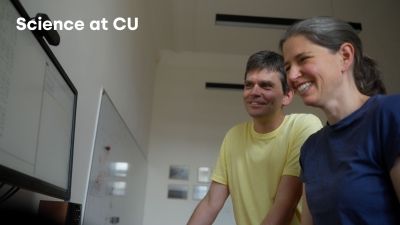"We study how the smallest babies, who don't speak at all, learn language, what they understand and what they know about their language," says Kateřina Chládková from the Faculty of Arts of Charles University in the one-minute video. The findings are then used, for example, to help adults learn foreign languages better.
We already know from our previous research that babies can distinguish some words, such as „parník“ (steamer) and „perník“ (gingerbread), right after birth, and they can also distinguish whether someone speaks with a native accent or with a foreign accent in Czech," says Kateřina Chládková.
Understanding how very young babies learn and understand their mother tongue is used, among other things, to help adults learn foreign languages better. "We are working with a Czech startup called Mooveez, where we are developing a new version of a mobile app in which adults or older children try to learn foreign languages in the same way they learned their mother tongue when they were babies," adds Kateřina Chládková.
All videos are produced with Czech and English subtitles.
In addition, they explore language acquisition across the lifespan. "We're looking at how babies learn their mother tongue, during pregnancy, fresh from birth in the maternity ward and in the first year of life. We also focus on school and pre-school children and examine how they learn foreign languages and how this differs from when adults and seniors learn foreign languages," says SPEAKIN Lab Group Leader and Primus grant recipient. She also revealed how such research is conducted in an earlier separate interview.
"We continuously look for babies - those to whom parents speak Czech and other languages, pre-school and school children - for research on language acquisition and perception. If you are interested in applying or learning more, please contact us," says Kateřina Chládková.
|
Science at CU in one minute The Science at Charles University series of short videos showcases the diversity of science at Charles University. In previous episodes, mathematician Erin Carson, teacher Daniel Pražák, cybersecurity expert Lucie Kadlecová, biologist Jan Černý, expert on children's reagind Anežka Kuzmičová, evolutionary biologist Zuzana Musilová, economist Julie Chytilová and Michal Bauer, and medical doctor Ilona Hromadníková, have already presented their research. |


















